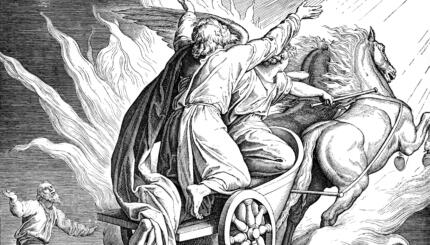Commentary on Parashat Masei, Numbers 33:1 - 36:13
“These were the marches of the Israelites who started from the land of Egypt, troop by troop, in the charge of Moses and Aaron. Moses recorded the starting points of their various marches as directed by the Lord….” (Numbers 33:1-2).
Parashat Masei, the second of the two portions that we read this week, begins with the recounting of the Israelites’ itinerary, outlining their travels from Egypt through the desert. Many commentators ask about the purpose of this listing. For a text that is so often terse and sparse on details, it seems strange that the Torah elaborates to list every stopping point on the Israelites’ journey. Why not simply leave it up to the reader to look back in the text and retrace their steps?
A midrash explains that God said to Moses: “Write down the stages by which Israel journeyed in the wilderness, in order that they shall know what miracles I wrought them.” According to this approach, the travels are enumerated to emphasize and highlight God’s power, and to ensure that the Israelites recognize God’s strength.
The , however, also offers a second explanation. It says that God commanded Moses to “recount to [the Israelites] all the places where they provoked Me.” In other words, this view suggests that the detailed review will act as a rebuke to the Israelites, for according to the Midrash, every place that is listed was a locus of sins committed by the Israelites.
Sforno, a medieval commentator, offers a third suggestion.In contrast to the second interpretation of the Midrash, Sforno explains that the Torah’s listing acts to praise the Jewish nation.
Despite the tortuous route through which God led them,despite all of the stops they made along the way, the Israelites remained faithful to God. Thus, the list of their stopping points highlights the challenges they faced, and by extension praises their faith.
I’d like to suggest one more explanation for these seemingly extra verses. The interpretations of the Midrash and Sforno each view the enumeration of the journeys as representative of something else of God’s might,of the Israelites’ failings, or of the Israelites’ faith.
However, I think that the text might be telling us something about journeys per se. The Torah is emphasizing the value of travel. By repeating the Israelites’ itinerary, the text draws attention to all the places that the Israelites have been and to all the experiences they have had.
In essence, the Torah is saying that there is inherent value to journeys, to life experiences. Whether these experiences are one’s great triumphs and miracles or whether they are one’s trials and failures, they are,in and of themselves, important. For every individual, every family, and every nation, our collected experiences create who we are and what is meaningful to us.
The Torah teaches us that the Israelites’ journeys their experiences are what have created their unique character and identity.
Reprinted with permission from the UJA-Federation of New York.

Help us keep Jewish knowledge accessible to millions of people around the world.
Your donation to My Jewish Learning fuels endless journeys of Jewish discovery. With your help, My Jewish Learning can continue to provide nonstop opportunities for learning, connection and growth.



